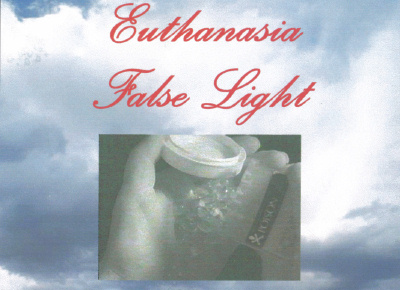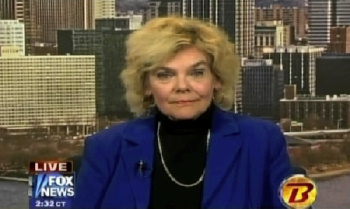“SEVERE AND ENDURING DISTRESS” DECLARED REASON FOR
ASSISTED SUICIDE AND EUTHANASIA
Doctors and nurses attending an international conference of right-to-die activists have declared that assisted suicide and euthanasia should be legally available to adults who are suffering “severe and enduring distress” and they’ve called on colleagues around the world to issue similar declarations.
Signers of the declaration made it clear that it is “distress,” not an illness, that constitutes a reason for “assisted dying.” They declared that even if a person is receiving excellent pain control for a physical malady, the option of “assisted dying” should still be available.
Thus, according to right-to-die advocates, one who is experiencing physical, mental, emotional, economic, or familial problems would qualify for a fatal overdose or a lethal injection as long as the distress from such factors is considered “severe and enduring.”
The following is the declaration signed at the 12th International Conference of the “World Federation of Right to Die Societies” held on October 12 – 15, 1998 in Zurich Switzerland. Emphasis is added.
“ZURICH DECLARATION ON ASSISTED DYING”
We are medical professionals attending the 12th International Conference of the World Federation of Right to Die Societies being held in Zurich from 12 to 15 October 1998.
We believe that we have a major responsibility for ensuring that it becomes legally possible for all competent adults, suffering severe and enduring distress, to receive medical help to die, if this is their persistent, voluntary and rational request. We note that such medical assistance is already permitted in The Netherlands, Switzerland and Oregon, USA.
We are familiar with the different scenarios which occur at the end of life. We know that if we should find ourselves in such situations, many of us have the knowledge to achieve self-deliverance, and we wish to extend this privilege to our patients. At this most critical time we must never abandon our patients. Excellent palliative care should not exclude the right to choose assisted dying.
In the past decade, an increasing number of doctors and nurses in different countries have stated, publicly and courageously, that they have actively helped their suffering patients to die, even when it was illegal.
Now, we, as medical professionals, must state our support for assisted dying and our commitment to such humane medical care. Therefore, we support the right of competent, adult patients, who are suffering severely, to seek our assistance, if this should be their enduring request.
We know that many medical professionals around the world share our views and we ask them to make similar declarations.
14 October 1998
Anne Clees, M.D., Luxemburg
Henri Clees, M.D., Luxemburg
Jan Hoogendam, M.D., Netherlands
Richard MacDonald, M.D., USA
Wilhelmina Hoogendam-Lanting, M.D., Netherlands
Meinrad Schar, M.D., Switzerland
Martine Cornelissen, psychologist, Netherlands
Eve Howett, R.N., U.K.
Aycke Smook, M.D., Netherlands
Rosemary Dewick, R.N., Australia
Michael Irwin, M.D., U.K
N.C. Webb, M.D., USA
Janny Feiertag-Veldman, R.N., Netherlands
Osamu Ishikawa, M.D., Japan
Peter Wright, M.B., U.K.
Alberto Gottlieb, M.D., Italy
Philip Nitschke, M.D., Australia
Corien Zwietnik, R.N., Netherlands




